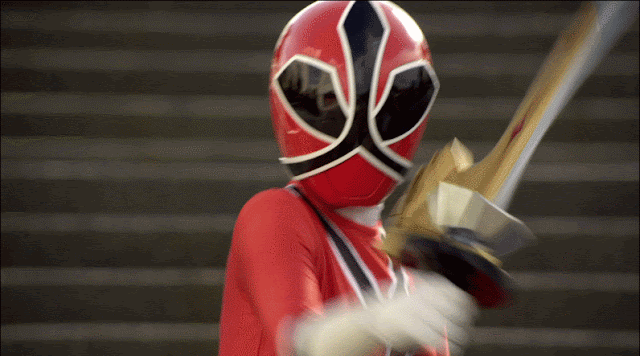Captain America: The Pageantry of Surveillance
Captain America: The Winter Soldier released at a time in American history when there was great mistrust of the government and their powers of surveillance. Even under the charismatic President Obama - whose outward persona exuded trust, understanding, and intelligence - the citizens of the United States felt like they were trapped, examined under a fine lens as government agencies watched our every move allegedly in order to maintain national security. People weren't fooled and so whistleblowers like Edward Snowden and Chelsea Manning decided to blow the horn on any number of secret plans that the United States had been cooking up, much of which - when presented to the public - became the subject of major controversy. Chief among these was the intense amount of surveillance that the government had been engaged with, as well as the complicity of a large number of corporations in the selling of their customers' personal information. Needless to say, these issues bled into the popular consciousness and into the popular fiction.
The second Captain America film begins with the infiltration of the Lemurian Star, a S.H.I.E.L.D. ship that has been overtaken by Algerian mercenaries. While Captain Steve Rogers is there to rescue hostages, fellow Avenger and Black Widow Natasha Romanoff is there to steal information from the ship, though Steve is unaware of this. When Steve finds out, he confronts Director of S.H.I.E.L.D. Nick Fury about it. Steve says that hostages could have gotten hurt; Fury says that he sent the greatest soldier of all time to make sure that didn't happen. Steve is furious, but demands what information could have been so important. Fury leads him underneath to construction facilities underneath the Potomac to show him Project Insight: three massive helicarriers with the capability of targeting enemy combatants from anywhere in the world.
"I thought the punishment usually came after the crime," Steve intones. The captain is appalled at the notion of these helicarriers. "This isn't freedom," he concludes. "This is fear." Fury says that the world doesn't work that way; that killing a terrorist before he has the chance to harm others is better than waiting for people to get hurt first - even if that person hadn't done anything to deserve it yet. What's interesting is that Project Insight seems to be something that Fury really believes in. The trials and tribulations he's endured to become the head spy of the biggest spy organization on the planet has forged some uncomfortable beliefs. In order to keep someone safe, you'll need to keep an eye on them. That's what Fury thinks and it's certainly a defensible. Steve, disgruntled, disagrees and leaves.
Nick Fury has been portrayed up to this point in the film series as a figure who did the right thing even if he had to break orders, destroying the jet ordered by the World Security Council to nuke Manhattan during the events of The Avengers. It's interesting that Fury then engages in a program that has such complete oversight on the whole world. But the Battle of New York changed everyone. It changed Tony Stark in fundamental ways, and it changed Nick Fury, too. Aliens invading New York City can do that. Enough, apparently, to start violating some fundamental rights.
But Steve remains resolute. All the way through fighting against the Winter Soldier, all the way through escaping from S.H.I.E.L.D. after he's incriminated, and all the way through finding out that HYDRA has been in control of S.H.I.E.L.D. this whole time. HYDRA's Arnim Zola created an algorithm that tracked every possible dissident in the world. Everyone from Iron Man to the Hulk to the President to Doctor Strange to some kid in high school that might grow up to oppose HYDRA. "The 21st century is a digital book," relates HYDRA mole Sitwell as Steve interrogates him. "Zola told HYDRA how to read it. Your bank records, medical histories, voting patterns, emails, phone calls, your damn SAT scores! Zola's algorithm evaluates people's past to predict their future... then the Insight helicarriers scratch people off the list. A few million at a time."
Thus we reach the logical conclusion and the obvious metaphor. Government surveillance is a dangerous thing and it's a slippery slope letting the people who are supposed to serve you see everything that you're doing. HYDRA is fine with you as long as you don't do anything wrong, but they're also targeting you anyway if they even suspect that you'll do some harm in the future. And they've become so ingratiated into S.H.I.E.L.D. that you have to wonder how separate the two really were. It begs the question: are the good guys really the good guys?
Consider: The film ends with the destruction and dissolution of the helicarriers and, with them, S.H.I.E.L.D. in its entirety. Not HYDRA. S.H.I.E.L.D. And in order to keep the good work that S.H.I.E.L.D. going, Fury chooses Phil Coulson to lead an underground version of it. S.H.I.E.L.D. needed to operate from the shadows, away from visible eyes of the people. They were no longer authority figures, but freedom fighters battling the now-exposed HYDRA. They're no longer under any pretenses of being authority figures and the American government mistrusts them. Now, they have to do the right thing - even if they need to do it without anyone realizing.
So, what can we conclude? That the destruction of S.H.I.E.L.D. is symbolic of a condemnation of the violation of one's privacy. Because what happens when government surveillance goes too far is the very loss of one's identity. One is forced to act a certain way, one has to conform to behaviors. It isn't freedom. It's fear. And Captain America fought against it, destroying the very embodiment of that evil. That should tell you something about what side you should be on and whether it's worth fighting.




Comments
Post a Comment